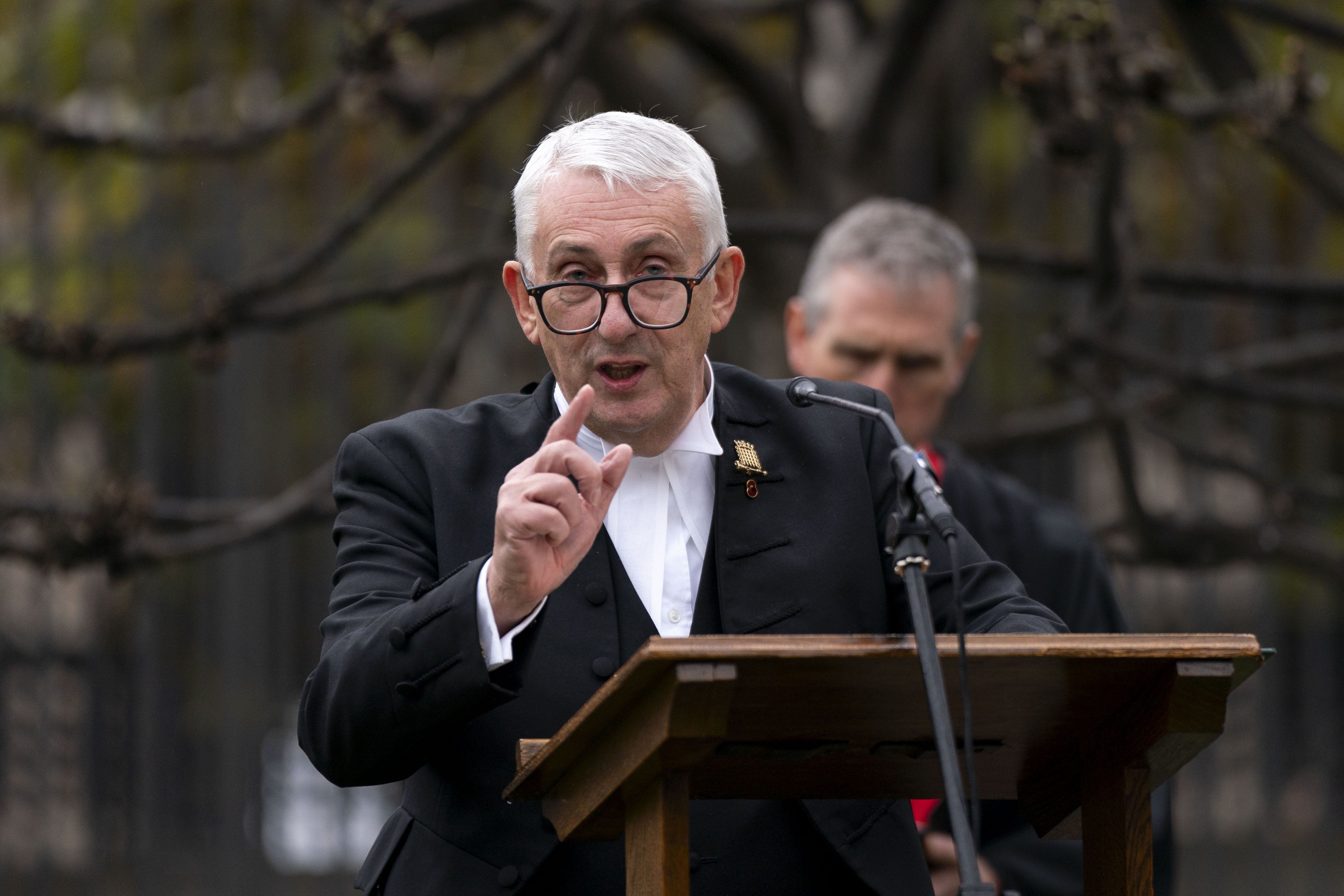Hoyle rebukes Chancellor Rachel Reeves over ‘premature disclosure’ of Budget
Ms Reeves has signalled she will rewrite the way Government debt is measured.

Sir Lindsay Hoyle has accused Chancellor Rachel Reeves of acting with “supreme discourtesy” towards MPs given her “premature disclosure” of Budget details.
The Commons Speaker said it was “totally unacceptable to go around the world telling everybody” about “major” new policy announcements rather than giving the information first to MPs.
Sir Lindsay also questioned whether MPs would need to bother attending the House to hear Ms Reeves deliver her first Budget on Wednesday, given “we’ll all have heard it” already.
Ms Reeves last week signalled she would rewrite the way Government debt is measured.
During a round of broadcast interviews while attending the International Monetary Fund meeting in Washington DC, Ms Reeves confirmed a technical change in the way she would measure progress against the target of managing debt.
It is expected Ms Reeves will use the Budget to open the door for the Government to spend billions more on long-term infrastructure, such as replacing dilapidated buildings on the public sector estate.
Sir Lindsay, making a statement, told the Commons: “In media interviews last week the Chancellor announced that she intended to introduce changes to the fiscal rules relating to the funding of day-to-day spending through tax receipts and to the measurement of the public debt.
“These are major new policy announcements with significant and wide-ranging implications for the Government’s fiscal policy and for the public finances.
“It is evident to me that this should therefore have been made in the first instance in this House and not to the world’s media.
“This principle is clearly and unambiguously set out in paragraph 9.1 of the Ministerial Code. While this can hardly be described as a leak – the Chancellor herself gave interviews on the record and on camera – the premature disclosure of the contents of the Budget has always been regarded as a supreme discourtesy to the House.
“Indeed, I still regard it as such.
“I am very, very disappointed that the Chancellor expects the House to wait nearly a full week to hear her repeat these announcements in the Budget statement on Wednesday.”
Sir Lindsay said he has “always defended” the right of MPs to be the first to hear major Government policy announcements, adding: “Ministers should expect to face proper, sustained scrutiny when these announcements are made from the elected Members of this House and not the American news channels.”
He noted Treasury minister Darren Jones’s statement to the House on “fiscal rules” on Monday, adding: “Perhaps no coincidence.
“Honourable members may be wondering how they’ll get a seat on Wednesday (for the Budget) – to be quite honest, the way it’s going you won’t need to, we’ll all have heard it. It’s not acceptable, I don’t want it to continue and I want to treat this House with the respect it deserves.”
Sir Lindsay added: “It’s totally unacceptable to go around the world telling everybody rather than these Members. They were elected by the constituents of this country and they deserve to be treated better.”
He went on to note Labour when in opposition complained about the previous Tory government behaving in a similar manner, adding: “Get your acts together, all sides, treat Members with respect.”
The Prime Minister’s official spokesman, responding to the Commons Speaker’s criticism, told reporters: “I don’t want to comment on parliamentary matters, but it’s entirely routine for government to make announcements in the run up to budgets and spending reviews.
“But obviously we will also ensure that Parliament has all the requisite time to scrutinise measures clearly.
“The Chancellor will be in front of Parliament on Wednesday and, indeed, there will be days of Budget debate subsequently at which parliamentarians will be able to scrutinise budget measures.”
In a statement to the Commons, Mr Jones set out changes to fiscal rules, known as the “stability rule, that we will pay for all day-to-day spending on public services from receipts” and the “investment rule, which will get debt falling as a proportion of our economy”.
Chairwoman of the Treasury committee Dame Meg Hillier asked Mr Jones to explain “how the guardrails will work between the National Infrastructure and Service Transformation Authority, the Office for Value for Money, and the National Audit Office – what roles each will play in making sure that we reassure the markets, so that the autumn snuffle doesn’t become a winter cold”.
Mr Jones replied: “The National Infrastructure Strategy will bring together all of the infrastructure and major projects asks of Whitehall departments into one place, alongside the economic infrastructure assessments for the first time.
“This will inform the multi-year spending reviews which will now be overlapping.”
Bookmark popover
Removed from bookmarks